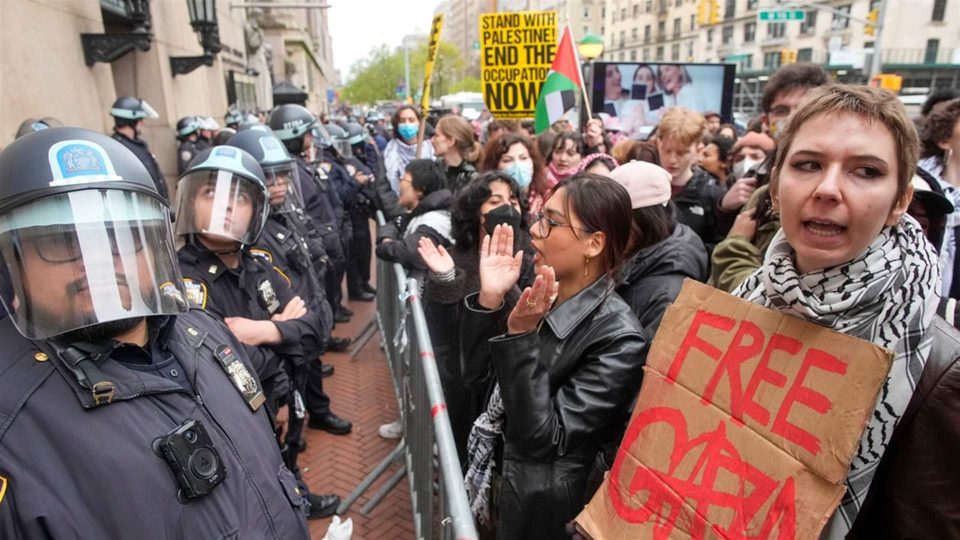FALCON POWERS – After the arrests of pro-Palestine student protesters occupying a Columbia University building last month, New York Mayor Eric Adams and senior police officials repeatedly said there were “no injuries,” no “violent clashes” and minimal force used.
But at least nine of the 46 protesters arrested inside the barricaded Hamilton Hall on April 30 sustained injuries beyond minor scrapes and bruises, according to medical records, photographs shared by protesters, and interviews. The documented injuries included a fractured eye socket, concussions, an ankle sprain, cuts, and injured wrists and hands from tight plastic flexicuffs.

All of the 46 protesters arrested inside Hamilton were charged with third-degree trespass, a misdemeanor. The arrests came after Columbia President Minouche Shafik, in a hotly debated decision, called in police hours into the occupation at the epicenter of a student protest movement that has spread to campuses around the world. Other university officials across the country also have called in police to quell pro-Palestinian and anti-Israel protest camps.
Reuters shared details of the protesters’ injuries and accounts with the mayor’s office, New York police and Columbia. None disputed the injuries. The mayor’s office and the police said officers acted professionally.
At least three injured protesters arrested inside Hamilton were taken by police to hospitals that night while still in custody, time-stamped hospital records show.
Other protesters, who are demanding Columbia divest from arms makers and other companies that support Israel’s government, had their injuries documented by volunteer doctors who provide support to people arrested by police and met them outside moments after their release from custody on May 2. Some then sought medical attention at clinics.
“I was slammed downward to the ground and, when I turned my head to see if there were any comrades who needed assistance, an officer kicked me in the eye and I went straight down, and there was that buzzing and sharp ringing in the ears,” said Christopher Holmes, a 25-year-old graduate student at the Columbia affiliate college Union Theological Seminary.


